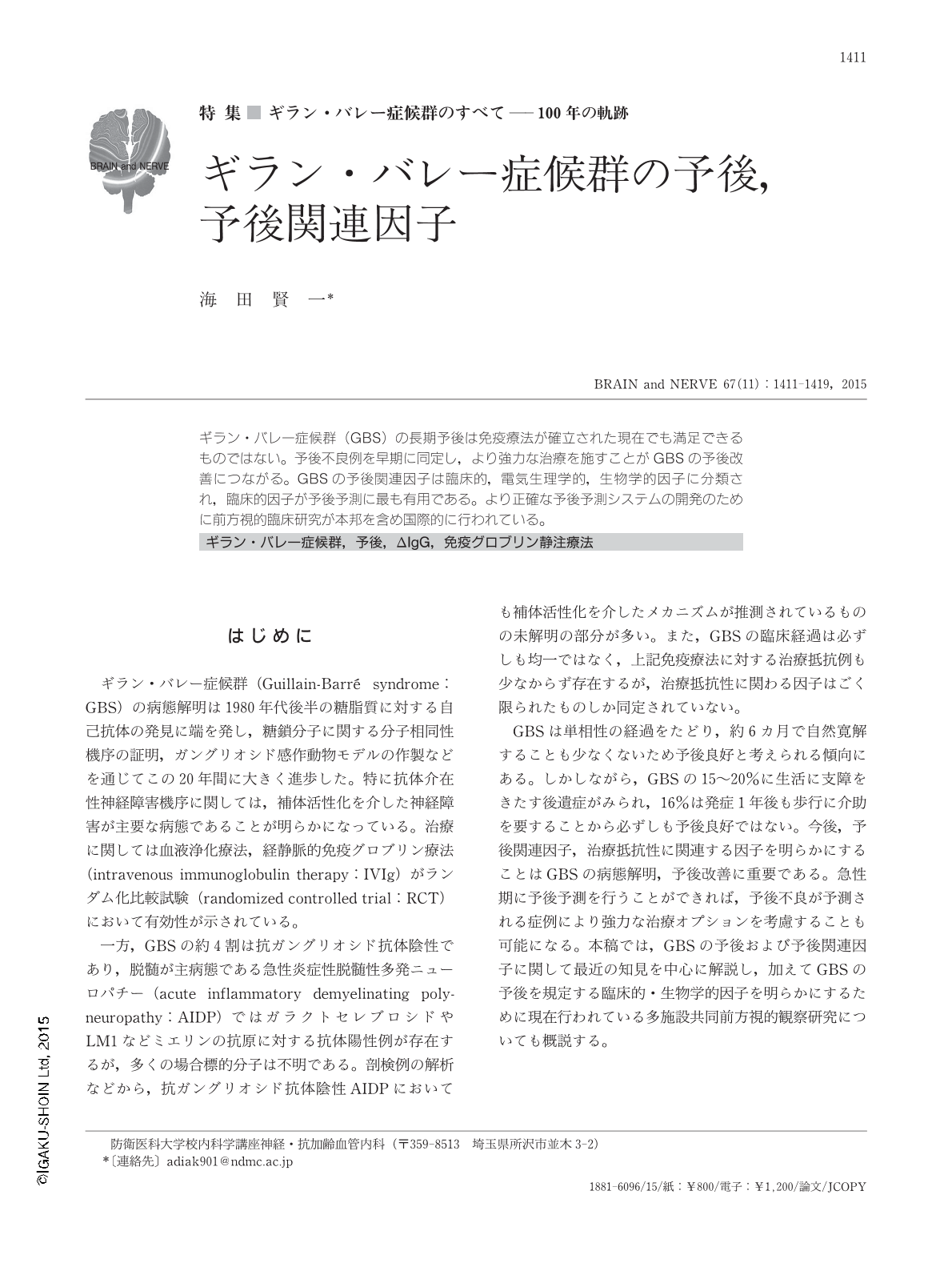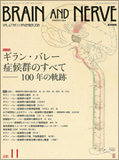Japanese
English
- 有料閲覧
- Abstract 文献概要
- 1ページ目 Look Inside
- 参考文献 Reference
ギラン・バレー症候群(GBS)の長期予後は免疫療法が確立された現在でも満足できるものではない。予後不良例を早期に同定し,より強力な治療を施すことがGBSの予後改善につながる。GBSの予後関連因子は臨床的,電気生理学的,生物学的因子に分類され,臨床的因子が予後予測に最も有用である。より正確な予後予測システムの開発のために前方視的臨床研究が本邦を含め国際的に行われている。
Abstract
Clinical outcome of Guillain-Barré syndrome (GBS) is poorer than may be expected, despite recent applications of plasmapheresis and IVIg. Among prognostic factors of GBS, clinical factors are more useful compared to electrophysiological or biological factors. To improve the outcome of GBS patients with poor prognoses, a worldwide prospective survey (IGOS, International GBS Outcome Study) and a Japanese prospective GBS outcome study (JGOS) have been conducted. These surveys make it possible to define biomarkers for disease activity and recovery, and to develop prognostic models to precisely predict the clinical course and outcome in individual patients in the early stage of the disease.

Copyright © 2015, Igaku-Shoin Ltd. All rights reserved.


